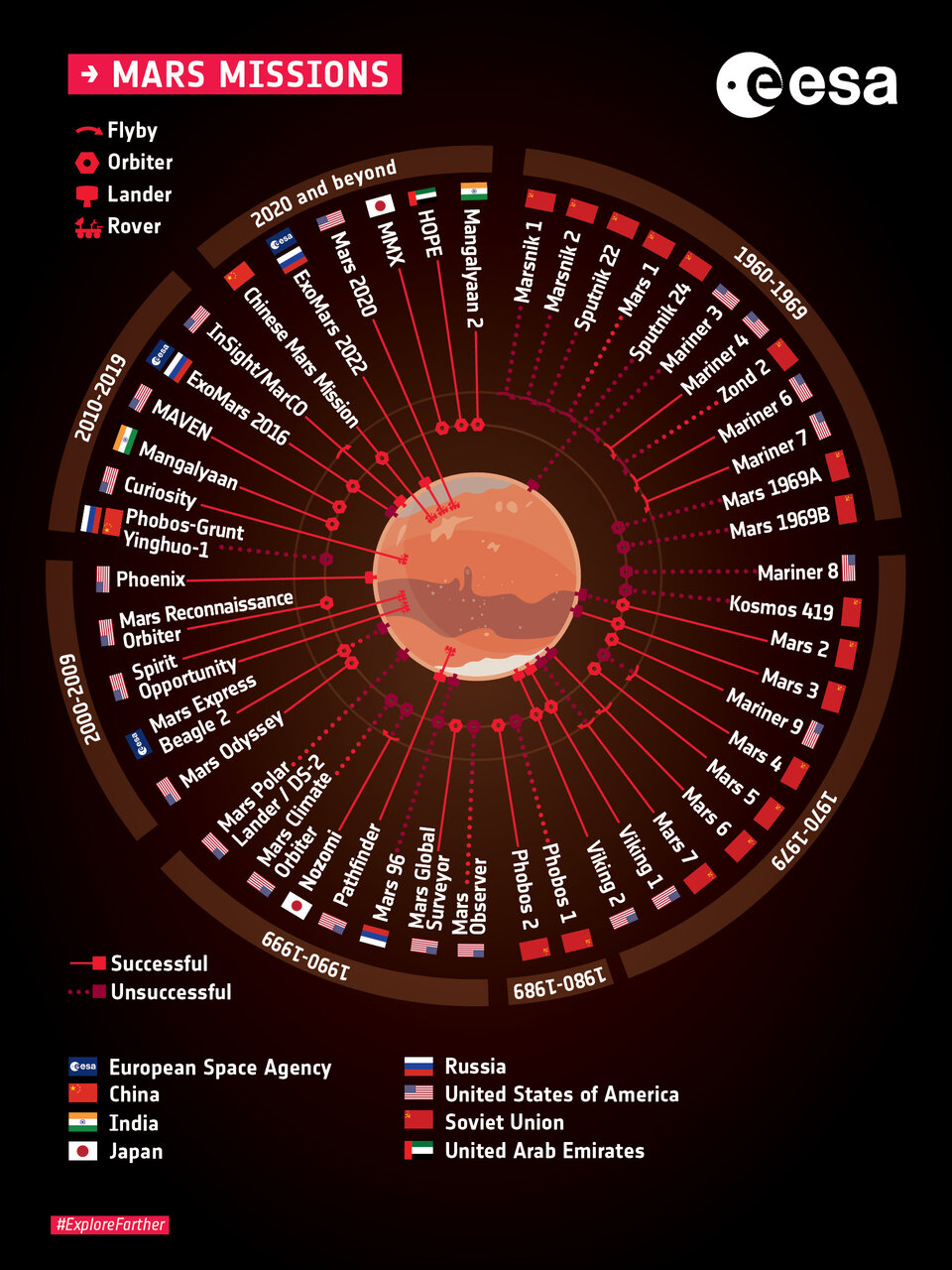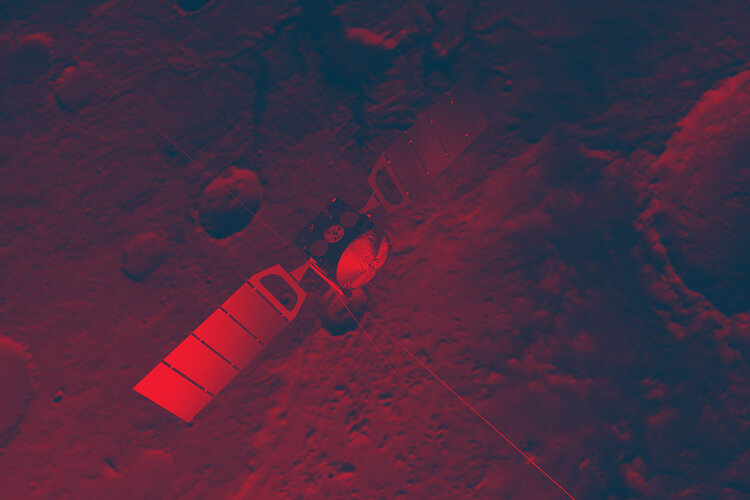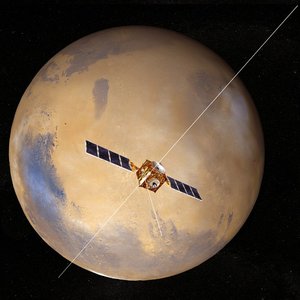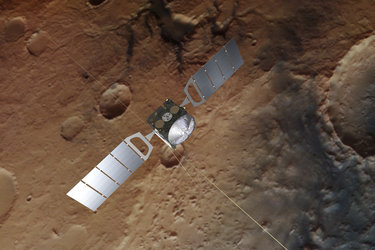International collaboration
Scientists and engineers from several countries outside Europe are participating in, or contributing to, Mars Express. Of these, Russia, Japan and the United States have had the greatest involvement.
Russia
Five of the instruments on Mars Express (HRSC, OMEGA, PFS, ASPERA and SPICAM) are descendants of instruments originally built for the Russian Mars '96 mission. Each of the seven orbiter instrument teams on Mars Express has Russian co-investigators who contribute their intellectual expertise to the project.
Japan
The Japanese spacecraft Nozomi, was due to go into near equatorial orbit around Mars shortly after Mars Express entered polar orbit. Nozomi had been due to reach the Red Planet in October 1999, but was delayed by a problem with the propulsion system.
Both missions shared a common interest in the Martian atmosphere. Nozomi was carrying a close relative of ASPERA, the instrument on Mars Express studying interactions between the upper atmosphere and the solar wind.
However, Nozomi had to give up its injection into orbit around Mars due to an unrecoverable malfunction. The ground control team sent a command to change the spacecraft's trajectory to avoid colliding with Mars and to continue travelling in an orbit around the Sun.
United States
ESA and NASA have made arrangements to use each other's orbiters as back-up for each other in relaying data and other communications from the landers to Earth.
Mars Express has also used NASA's Deep Space Network for communications with Earth during parts of the mission. US scientists have played a major role in one of Mars Express's payload instruments, MARSIS, and participate as co-investigators in most other instruments.
A global effort to explore the Red Planet
Mars Express marked the beginning of a major European involvement in an international programme to explore Mars over the past two decades. Europe, the US and Japan have planned missions, but many more countries have contributed experiments, hardware and expertise.
Each mission has made its own unique contribution towards a global effort coordinated by the International Mars Exploration Working Group.
The idea for a European mission to Mars is not new. Before choosing Mars Express, ESA had debated other mission ideas including Intermarsnet, which would have consisted of an orbiter and four landers to perform atmospheric, surface science and seismic studies from a network of widely-spaced locations on Mars.
The graphic below summarises past and future missions to Mars, as of May 2019.







